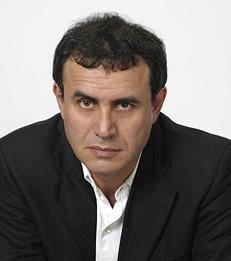Sleepwalking on Megathreat Mountain.

By Nouriel Roubini
A host of interconnected “megathreats” is imperiling our future. While some of these have been long in the making, others are new. The stubbornly low inflation of the pre-pandemic period has given way to today’s excessively high inflation. Secular stagnation – perpetually low growth owing to weak aggregate demand – has evolved into stagflation, as negative aggregate supply shocks have combined with the effects of loose monetary and fiscal policies.
Where once interest rates were too low – or even negative – they have now been rising fast, driving up borrowing costs and creating the risk of cascading debt crises. The age of hyper-globalization, free trade, offshoring, and just-in-time supply chains has yielded to a new era of deglobalization, protectionism, reshoring (or “friend-shoring”), secure trade, and “just-in-case” supply-chain redundancies.
Moreover, new geopolitical threats are increasing the risk of both cold and hot wars and further balkanizing the global economy. The effects of climate change are becoming more severe, and at a much faster pace than many had anticipated. Pandemics, too, are likely to become more frequent, virulent, and costly. Advances in artificial intelligence, machine learning, robotics, and automation are threatening to produce more inequality, permanent technological unemployment, and deadlier weapons with which to prosecute unconventional wars. All of these problems are fueling a backlash against democratic capitalism, and empowering populist, authoritarian, and militaristic extremists from both the right and the left.
Read the full Project Syndicate article.
___
Nouriel Roubini is a Professor Emeritus of Economics and International Business and the Robert Stansky Research Faculty Fellow.
